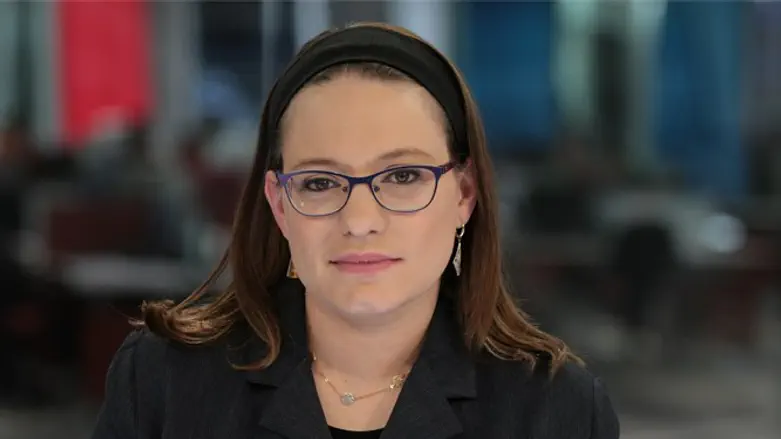
During the days leading up to Pesach, hundreds of adolescent girls from the Nifgashot workshop are composing their own Haggadah together with me. Here are some beautiful thoughts from one of the girls, 13-year-old Noam Biton from Safed:
"The holiday of Pesach represents leaving slavery for freedom. But in order to achieve freedom, we must first examine why we are enslaved. This year, our slavery has been the corona pandemic. I am not talking about the necessity of treating the pandemic, or vaccinating to prevent it, but rather our preoccupation with it.
"Try an experiment: have a conversation with friends in your living room or around the Shabbat table, and check how many minutes it takes before the talk turns to the corona. In general, this will take no more than a few minutes.
"Throughout the past year, all of our thoughts and words focused on the pandemic and nothing else. We continually asked ouselves: 'Will this pandemic ever end? Will we go into isolation? Were we beside someone who tested positive? When will they reopen the schools?' I am even missing former concerns such as 'my room is a mess' or 'I didn't do my homework.' It's impossible to escape the corona; everything leads to it.
"But this slavery is not going to last forever. We can and we must refresh and renew ourselves, and reach a higher level - to adhere to the pandemic guidelines but to occupy ourselves with an abundance of other matters. Not to live only for survival, but rather for more essential things. The holiday of Pesach this year is an opportunity to leave this slavery, to bring our brains to freedom. And it's possible to start doing so at this very moment."
But what is freedom?*
The Pesach holiday is called "the time of our freedom." Rabbi Ayal Vered has attempted to translate the imposing concept of "freedom" into terms relevant to our daily lives.
"Freedom - is to become familiar with that little round, red button that shuts off our phones and to use it every now and then.
"Freedom - is to take only what we need from a giant wedding buffet, when there is enough food for a herd of elephants and way too much for ordinary people.
"Freedom - is the capacity not to hear and not to read lashon hara (derogatory speech); even though everyone disparages it, it still bubbles up on every website.
"Freedom - is the ability to tell your employer that you have a wife and children, and therefore you cannot work around the clock, that you cannot leave the house in the morning while the children are still asleep and return at night after they have gone to sleep again. You have other things to do in life. And before you tell this to your employer, you need to tell this to yourself.
"Freedom - is to know how to live from the money you have, and not from the money you don't have (not to be perpetually in overdraft, that is).
"Freedom - is the capacity to remain silent. Not to react to everything. To shut our mouths during an argument.
"Freedom - is the ability to strive to find the good where no one else sees it. And also to articulate it, with passion. To look positively at reality and not to fall into the pit of grumbling complaint and discontent, rather to be joyful and to give thanks and to know how to make things better.
"Freedom - is not to honk in anger at the driver in front of us who delays a bit when the stoplight turns green, but rather to signal to him gently with our headlights.
"Freedom - is the ability to see each individual not as a means, as someone to exploit, but rather as an end in himself.
"Rabbi Yehuda Halevi wrote: 'Slaves to time are abject slaves; only the slaves of Hashem are free.' The Statue of Liberty has its place, yet freedom is not just a symbol, but the essence of who we are. It is the complete expression of our personality, both as individuals and as a nation. Happy holiday of freedom".
* Translation by Yehoshua Siskin